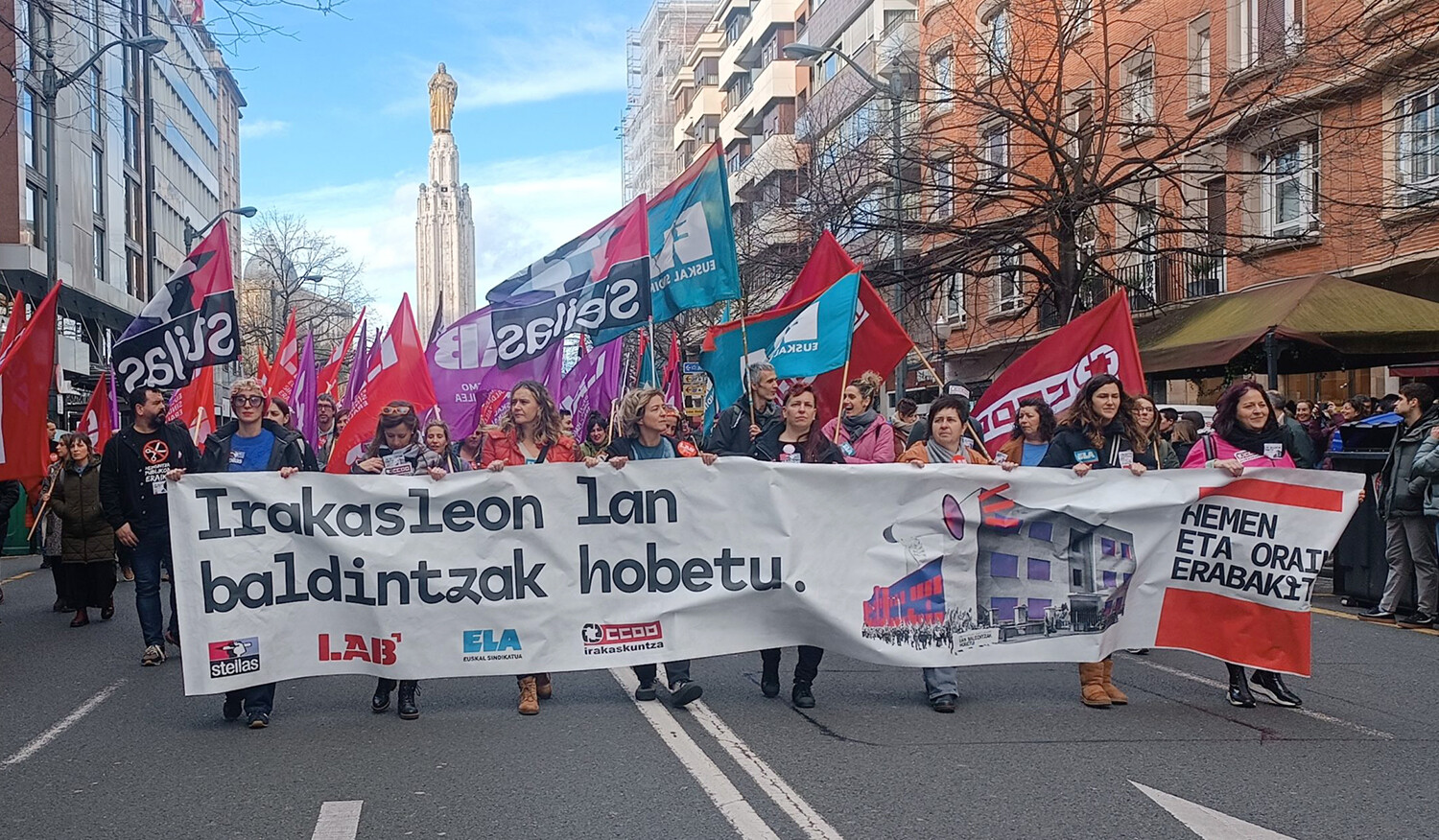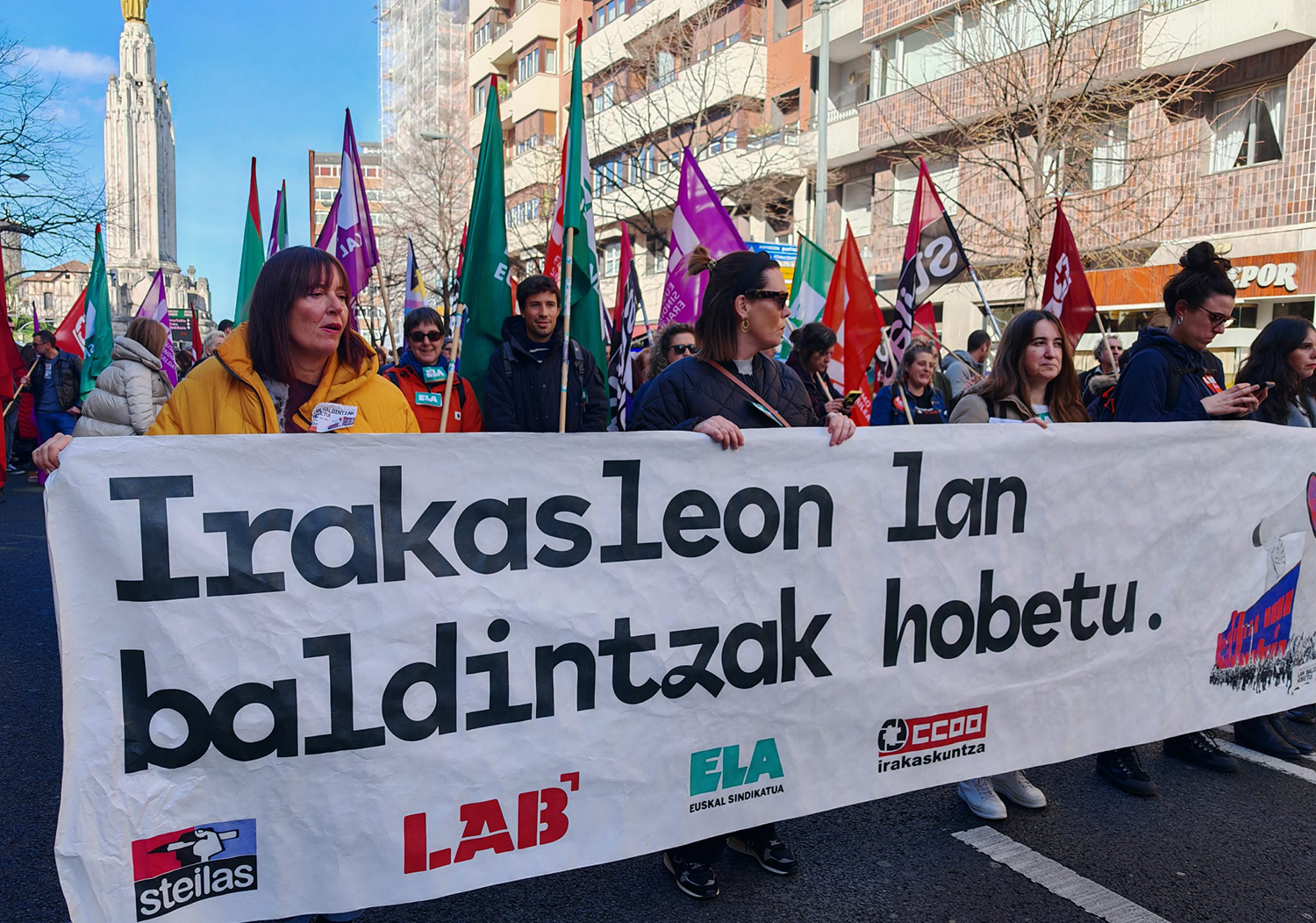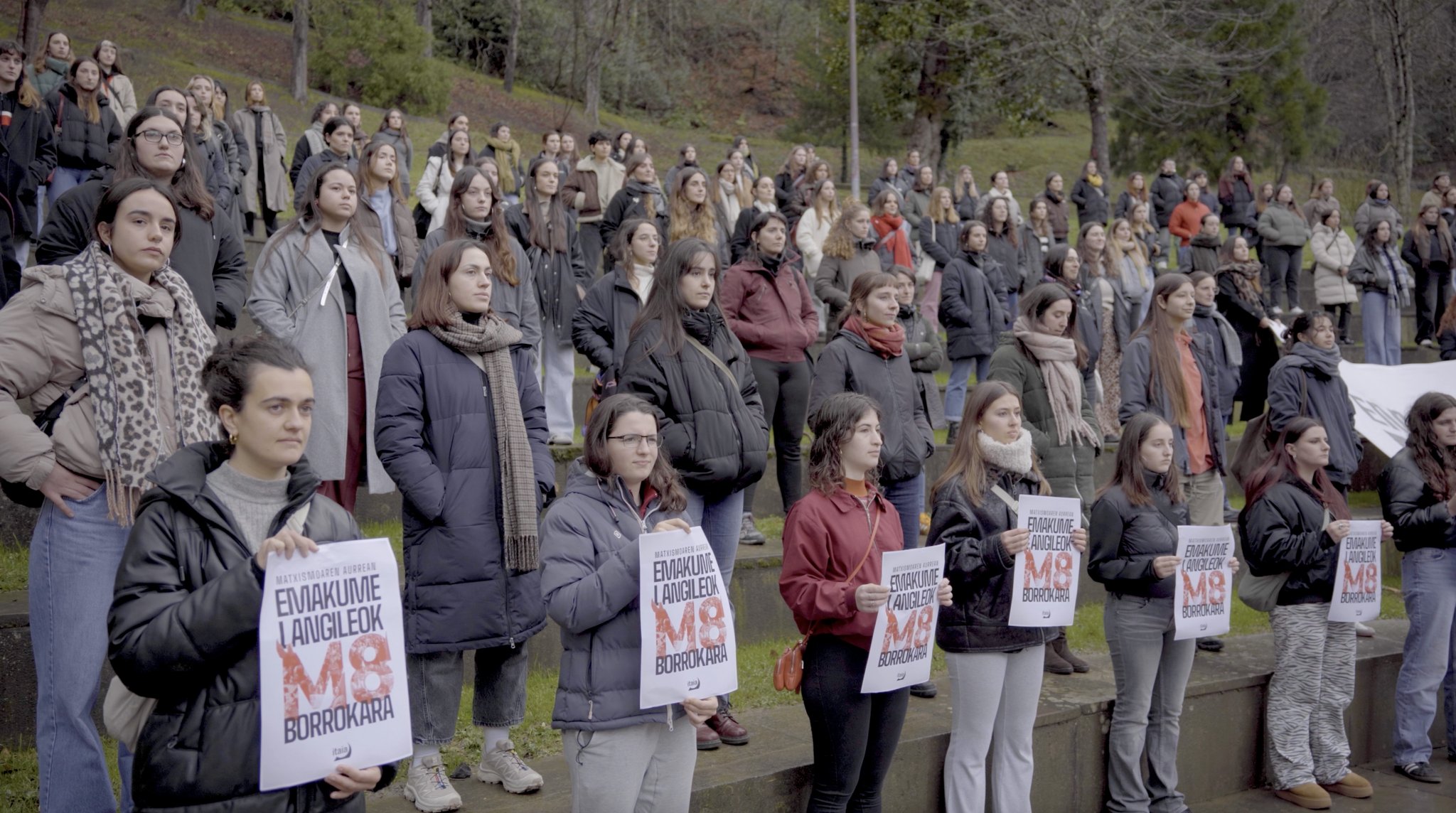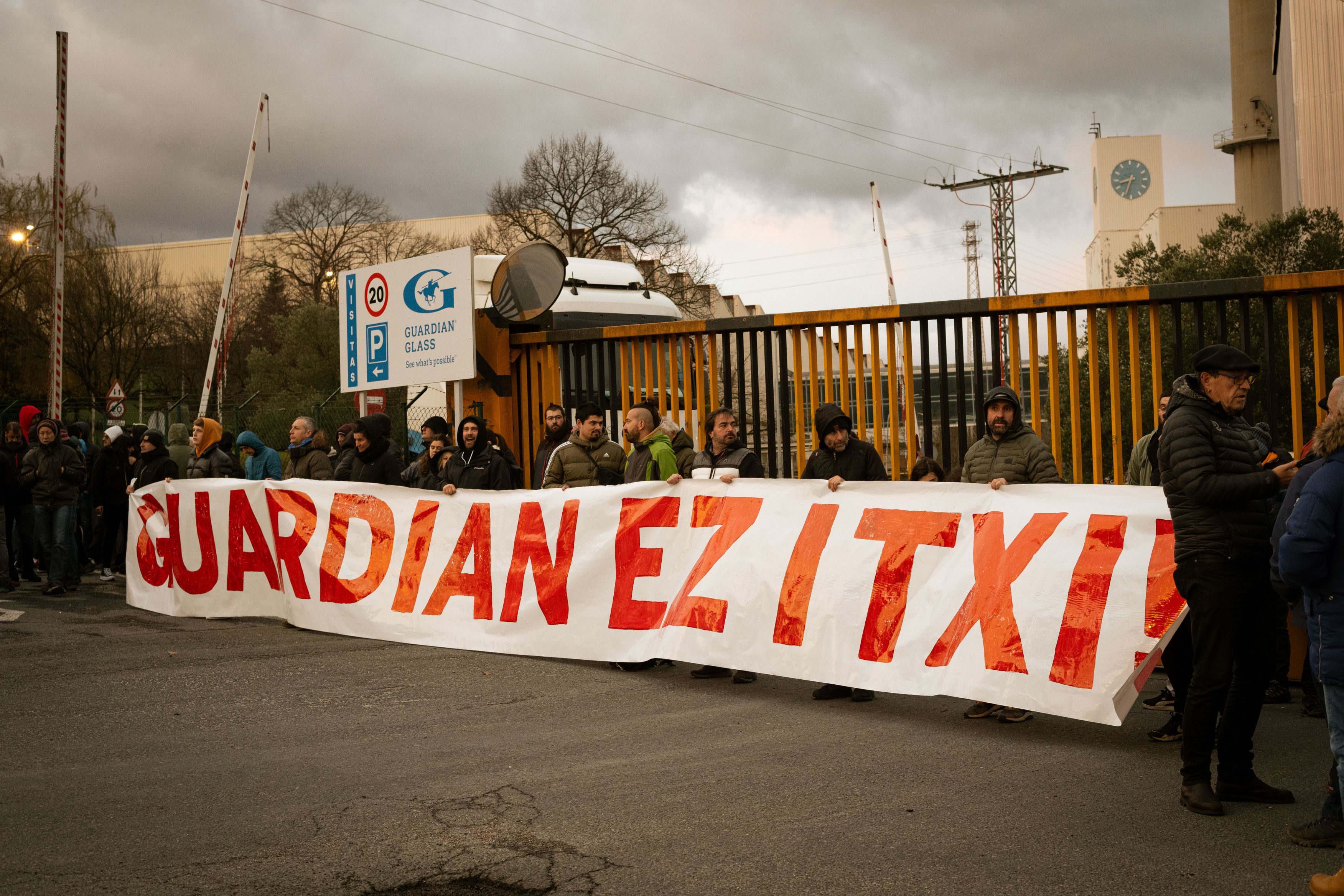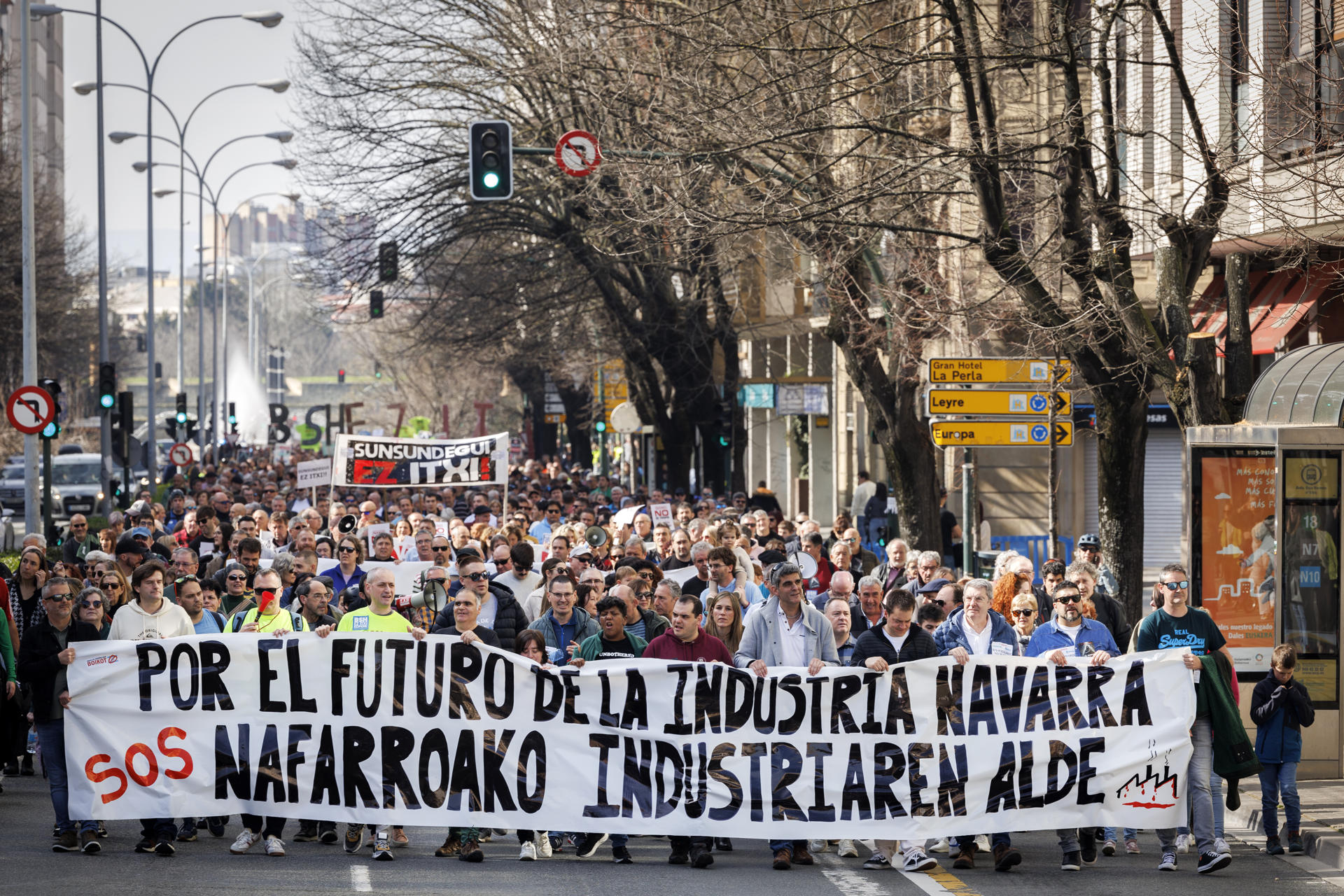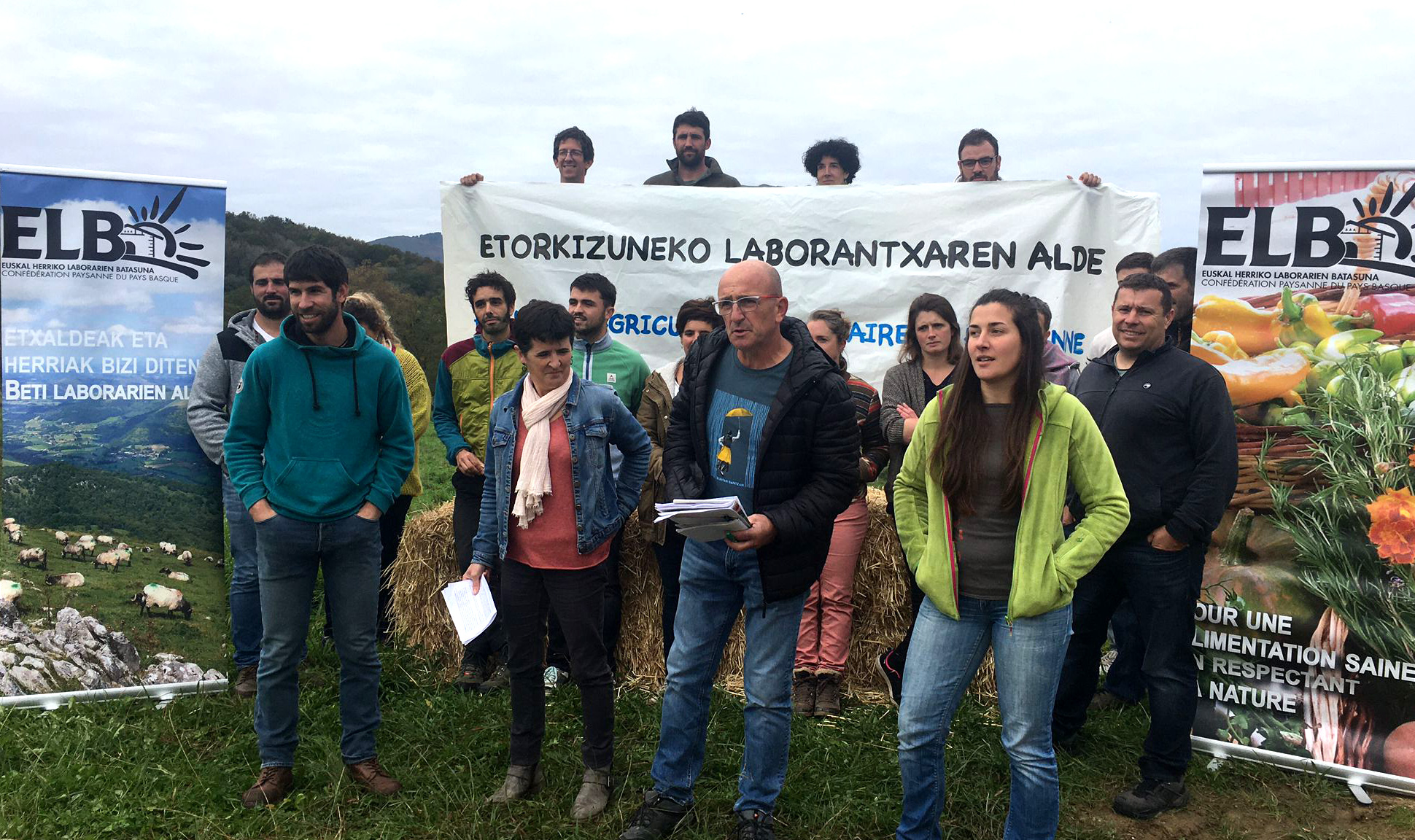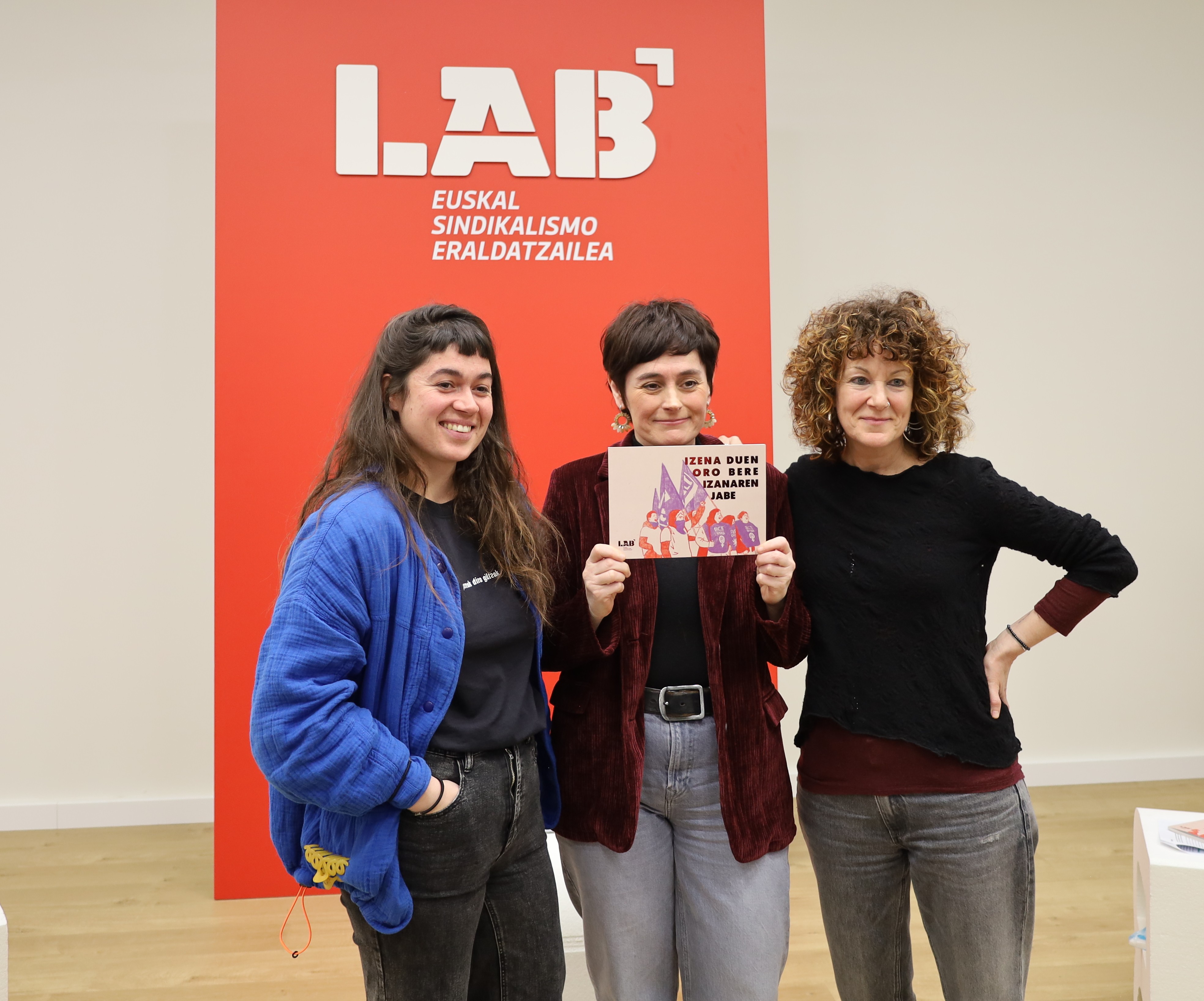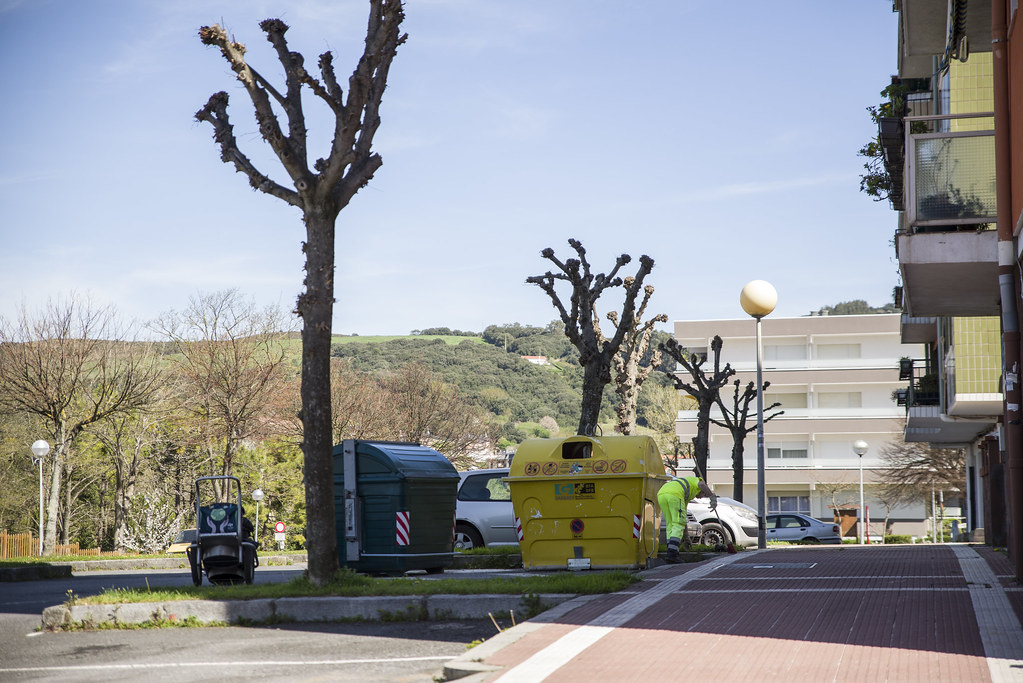LAB denounces that they “deceived” Mercedes workers
- LAB has described Bingen Zupiria’s statements as “very serious”. Once the pre-agreement was adopted, the government spokeswoman pointed out that it is time to “convince” Mercedes to make an announced investment of EUR 1.2 billion. He says that those who linked investment with the pre-agreement have "fooled" at will. Mercedes ELA, LAB and ESK value the struggle of workers during these weeks.

Government spokesman Zupiria valued the outcome of the Mercedes referendum on Tuesday. 57% of the workers accepted the pre-agreement signed between the management and a part of the works council, although they highlighted the refusal among the workshop workers who have borne the weight of the strike. Zupiria stressed that the referendum was conducted with “normality” and a lot of participation, and that with the agreement workers have “guaranteed labor rights” for a time. “The challenge we all have now is to convince Mercedes that Vitoria-Gasteiz is the right place to invest somewhere in Europe.”
Condition voting
LAB shows her discomfort from Zupiria's words: “LAB believes it has become clear that the institutions, the management of the company and the signatory unions have wanted to deceive Mercedes workers.” The company announced in June its intention to invest EUR 1.2 billion, but on the condition that workers accept greater “flexibility” in the new employment agreement. The main public institutions and the public and private dependent media supported the management proposal in a few hours. Also in the preamble to the referendum the outcome of the referendum was directly linked to investment. LAB says that, once the pre-agreement was approved, saying that “the challenge” is to “convince” Mercedes that “those who added the investments and the result of the vote did so only to condition the vote, pressuring the workers and deactivating the workforce struggle.”
"The Beginning of the Struggle"
Among the Polish trade unions, ELA, LAB and ESK were the calls to vote against the pre-agreement. The outcome of the referendum and the strikes and mobilizations of previous doors have been assessed in the joint note. Despite the victory of assent, the outcome of the struggle has not been “disappointing”, according to the unions. In contrast, the workers’ struggle has led the leadership and some unions to “not sign the agreement they wanted”, emphasizing that they rejected the sixth night. They have thanked all the workers “who have fought at some point”, even those who have been against the agreement for fear and voted in favour.
The struggle of recent weeks has been a turning point according to ELA, LAB and ESK. “It’s the beginning of the road. It has been shown that if we do not fight for our working conditions, the company, the political class and some trade unions will oppose them, because even if they have millionaire profits, their only limitation is the one we are able to put ourselves in.”
He has.
Mendizale batek asteburuan ikusi du animalia Lapurdiko Azkaine herrian, eta otsoa dela baieztatu du Pirinio Atlantikoetako Prefeturak. ELB lurraldean "harraparien presentziaren kontra" agertu da.
2024ko laneko ezbeharren txostena aurkeztu dute LAB • ESK • STEILAS • EHNE-etxalde eta HIRU sindikatuek aurtengo otsailean. Emaitza larriak bildu dituzte: geroz eta behargin gehiago hiltzen dira haien lanpostuetan.
Jakina da lan ikuskariak falta ditugula geurean. Hala ere, azken egunotan datu argigarriak ematea lortu dute: lan ikuskaritzaren arabera, EAEko enpresen %64ak ez du ordutegien kontrolean legedia betetzen. Era berean, lehendakariordeak gaitzetsi du, absentismoaren eta oinarrizko... [+]
Aiaraldeko hainbat irakaslek mezua igorri diete ikasleen guraso eta familiei, dagoen informazio zurrunbiloan, grebarako arrazoiak modu pertsonalean azaltzeak euren borroka eta lanuztea hobeto ulertzeko balioko dielakoan.
Martxoaren 8a hurbiltzen ari zaigu, eta urtero bezala, instituzioek haien diskurtsoak berdintasun politika eta feminismoz josten dituzte, eta enpresek borroka egun hau “emazteen egunera” murrizten dute, emakumeei bideratutako merkatu estereotipatu oso bati bidea... [+]
Grebaren bezperan Hezkuntza Sailak “edukirik gabeko” mahaia deitu zuela eta sindikatu deitzaileak “errespetatu gabe” akordioa “antzezteko” gutxiengoa duten sindikatuak “erabili” nahi izan zituela salatu ostean, beste bi greba... [+]
Martxoak 8aren izaera iraultzailea berreskuratzeko deia egin du Itaia emakumeen antolakunde sozialistak. Irene Ruiz Itaiako kideak azaldu digunez, “oldarraldi erreakzionarioaren eta matxismoaren aurrean proposamen iraultzailea hauspotu eta kontzientzia sozialista... [+]
The Department of Education doesn't understand why public employees have gone on strike. He's got to ask the LAB Syndicate. This union signed an agreement with the department in April 2023. Two years later they have also called for a strike because, unlike the previous ones, the... [+]











